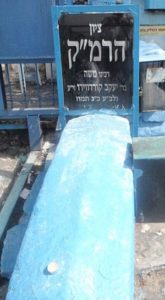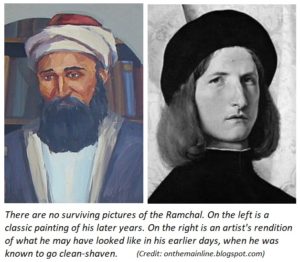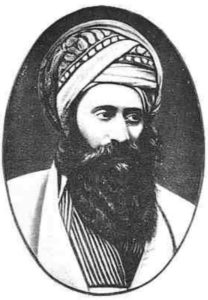The First Systemiser of Kabbalah

The grave of the Ramak in Tzfat, Israel
Moshe ben Yaakov Cordovero (1522-1570) was born in Tzfat, Israel to a Sephardic family from Cordoba, Spain that fled during the Expulsion of 1492. The family first settled in Portugal before Portugal, too, expelled its Jews. They eventually made it to Israel and settled in Tzfat. By the time he was twenty, young Moshe was already recognized as a great sage and rabbi, a leader of Tzfat’s rapidly-growing Jewish community, and the head of its Portuguese Yeshiva. That same year, he heard a Heavenly voice instruct him to begin the study of the Zohar, the central textbook of Jewish mysticism (Kabbalah). He began studying with his brother-in-law, Rabbi Shlomo Alkabetz (famous for composing Lecha Dodi). Within a few short years, he mastered the entire Zohar—and the rest of Kabbalah with it. In 1548 he completed his magnum opus, Pardes Rimonim, “Pomegranate Orchard”, which organized and integrated all of the vast Kabbalistic wisdom into one cohesive system. He then wrote a 16-volume commentary on the Zohar, and was soon recognized as the world’s preeminent Kabbalist. In 1550, he opened his own mystical school, and attracted rabbis from far and wide to come study with him. Among them was Rabbi Chaim Vital, and many years later, the great Arizal. The latter only arrived in Tzfat on the day that Rabbi Moshe Cordovero—immortalized as the “Ramak”, based on his initials—passed away. The Arizal would go on to create his own Kabbalistic system, which later inspired several more branches, including those of the Baal Shem Tov (founder of Hasidism), and the Ramchal. However, the Ramak will always remain as the first great systemiser of Jewish mysticism. The Ramak wrote several other renowned works, and devised a new system of Jewish meditation, too. He is still ranked among the greatest Jewish mystics of all time. Today is his yahrzeit.
Words of the Week
The pageant of evolution [consists of] a staggeringly improbable series of events, utterly unpredictable and quite unrepeatable… human beings are an improbable and fragile entity… it fills us with amazement that human beings ever evolved at all.
– Stephen J. Gould, world-renowned evolutionary biologist

 Moshe Chaim Luzzatto (1707-1746) was born in Padua, Italy to a wealthy Sephardic family. He studied under some of the great Italian rabbis of the time and was quickly recognized as a prodigy, receiving rabbinic ordination himself while still a teenager. He also took up studies at the University of Padua, and by the time he was just 20 years old had complete mastery of Torah, Talmud, and Kabbalah (Jewish mysticism), as well as philosophy, medicine, and alchemy. He had also written a textbook on Hebrew language and grammar, Leshon Limmudim (predating
Moshe Chaim Luzzatto (1707-1746) was born in Padua, Italy to a wealthy Sephardic family. He studied under some of the great Italian rabbis of the time and was quickly recognized as a prodigy, receiving rabbinic ordination himself while still a teenager. He also took up studies at the University of Padua, and by the time he was just 20 years old had complete mastery of Torah, Talmud, and Kabbalah (Jewish mysticism), as well as philosophy, medicine, and alchemy. He had also written a textbook on Hebrew language and grammar, Leshon Limmudim (predating 

